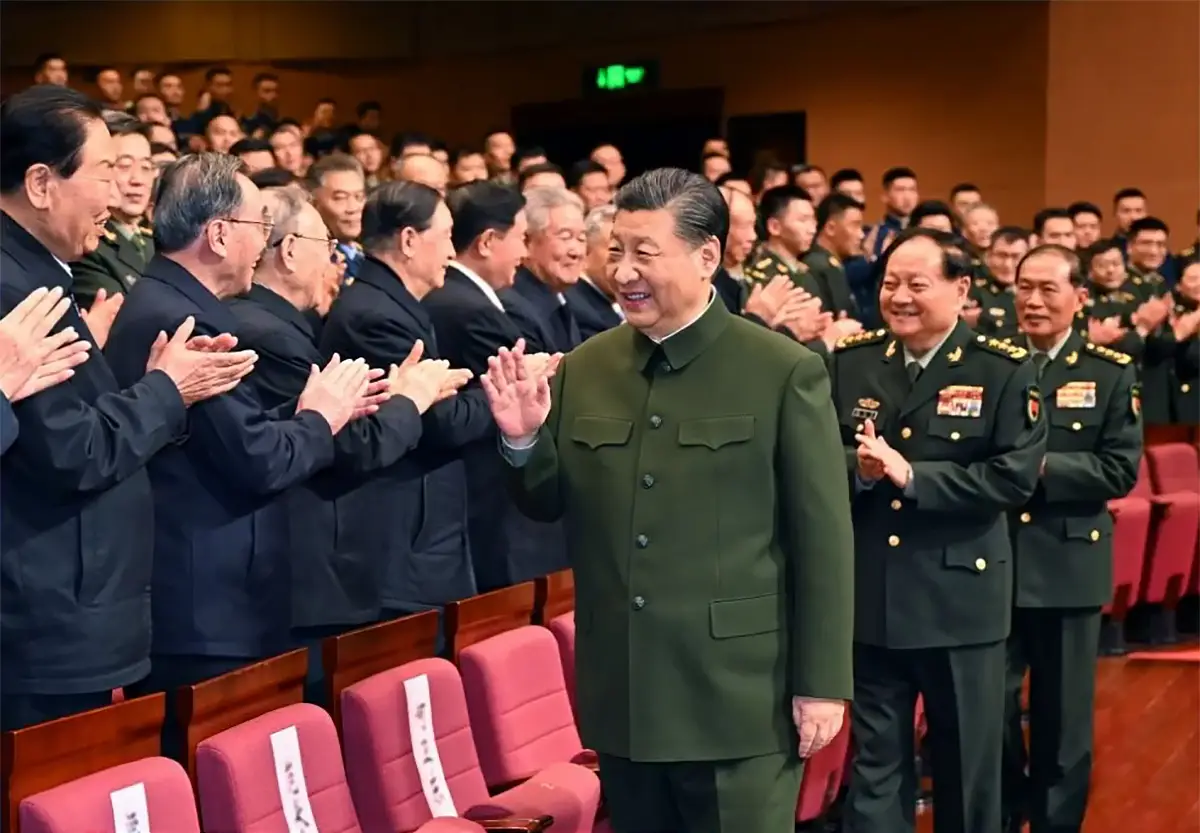In February, Beijing will become the first city to host both a Summer and Winter Olympics when it hosts the Games of the 24th Winter Olympiad. As in 2008, when the city hosted the Summer Olympics, there has been no shortage of controversy in the months leading up to the games. Wary of Beijing's attempts to co-opt the Olympics to advance its interests and uncomfortable with being seen as endorsing the repressive policies of the People's Republic of China (PRC)—particularly in the western region of Xinjiang—12 nations at the time of writing have announced that they will not send senior officials to the games. This diplomatic boycott is intended to convey displeasure over Beijing's conduct while stopping short of denying athletes a once-in-a-lifetime opportunity to compete in the Olympics. In announcing the U.S. diplomatic boycott, White House Press Secretary Jen Psaki told reporters that the U.S. “will not be contributing to the fanfare of the games,” and attributed Washington's decision to the “ongoing genocide and crimes against humanity in Xinjiang” perpetuated by the PRC government. Beijing has responded angrily to the diplomatic boycott and has threatened to enact “firm countermeasures” against those who participate.
The 2022 Winter Olympics will also be rife with challenges for Beijing, not the least of which will be staging the games under COVID-19 conditions. With confirmed cases rising in many parts of the world due to the highly contagious Omicron variant, the PRC's zero-tolerance approach to containing the spread of COVID-19 is certain to be tested. Beijing will need to ensure that the events proceed smoothly with minimal disruptions and that the games do not become a global superspreader event once the athletes return home. Compounding this challenge will be the intense international media spotlight on Beijing's performance while the games are underway, greatly magnifying Beijing's handling of any outbreak.
For the Communist Party of China (CPC), however, hosting the Winter Olympics presents opportunities in addition to these challenges. The Winter Olympics provide the CPC with an opportunity to showcase China's continued emergence as a major player on the global stage, validate the CPC's achievements before an international audience, improve the country's international image and influence, and demonstrate its superior ability to handle the COVID-19 pandemic. Consequently, staging a successful Winter Olympics has become a major political priority for the CPC. As a sign of the importance the CPC attaches to this event, it has tapped Cai Qi, a member of China's governing Politburo and the party secretary of the Beijing Municipal CPC Committee, to serve as the chairman of the Beijing Organizing Committee for the Olympic Winter Games. Other members of the organizing committee include Beijing's mayor and the governor of neighboring Hebei Province, where several events will be staged near the city of Zhangjiakou.
From Beijing's perspective, staging a successful Winter Olympic Games likely hinges on its ability to achieve the following objectives:
Preventing a major COVID-19 outbreak . The arrival of several thousand athletes, coaches, trainers and journalists from around the world poses a serious challenge to Beijing's stringent COVID-19 prevention measures. To prevent the games from becoming a super spreader event, Beijing plans to consign all participants to a “bio-secure bubble” near the competition venues, administer daily COVID-19 tests, quarantine any positive cases in designated hospitals, isolate their teammates in hotel rooms and limit attendance to residents of the PRC.
Ensuring that the competitions proceed without incident . With China's borders effectively closed and foreign fans banned from attending, the risk that an act of terrorism or political protest could disrupt the competition and embarrass the regime has been greatly diminished. The threat remains though—including the prospect of individual athletes using the Olympic spotlight to make a political statement—and a heavy security and surveillance presence at all competition venues should be expected. A more likely scenario, however, is that competitions are delayed or cancelled because of the pandemic, something that Beijing will be keen to prevent.
Limiting the effects of the diplomatic boycott . Although the diplomatic boycott is undoubtedly embarrassing to Beijing, the CPC's near-term priority will be to limit the boycott to the U.S. and its allies, allowing it to portray the boycott as a politically motivated act by the U.S. that lacks broader international support. Beijing will also be keen to ensure that anti-U.S. sentiment among Chinese spectators does not mar any of the competitions.
Controlling the weather . In addition to medical and diplomatic concerns, there are also atmospheric ones. The mountains ringing Beijing typically receive less than a foot of snowfall each year and the organizing committee will need to find a way to generate enough snow to support the outdoor competitions. Current plans call for manufacturing snow or trucking it in from elsewhere, both of which have uncertain environmental consequences given Beijing's arid climate, where water shortages have historically been a problem. Air pollution is also a concern. Hazardous smog is an enduring problem for the Chinese capital, particularly in the winter months, posing a challenge to President Xi Jinping's vow to stage a “green Olympics.” To combat the problem, Beijing has announced a “blue skies” initiative imposing curbs on industrial production in 64 cities in north-central China while the Olympics are underway.
Winning. Although topping the gold medal count—as China did at the 2008 Summer Games—is unrealistic in a country with no winter sports tradition to speak of, the Chinese populace will expect PRC athletes to perform well. A repeat of the China's dismal performance at the 2018 Winter Olympics in the Republic of Korea—where the PRC only won a single gold medal—would be received poorly at home.
Regardless of how the games play out, one thing that the Olympics are unlikely to alter is the persistent downward trajectory of U.S.-China relations. In fact, the games are more likely to exacerbate existing frictions in bilateral ties. Washington's depiction of Beijing as carrying out “genocide” in Xinjiang—and the PRC foreign ministry's response accusing the U.S. of perpetuating its own “evil crimes” against Native Americans—suggests that the ongoing war of words between the two of governments shows no sign of dissipating in the near future. Beijing may also seek to retaliate against the U.S. diplomatic boycott by boycotting the 2028 Summer Olympics in Los Angeles, an option that China's principal authoritative media outlets have already begun to discuss.
Beijing's handling of COVID-19 at the Olympics is also likely to exacerbate these frictions. If the PRC is successful at keeping the virus under control, Beijing is likely to tout this as evidence of the superiority of the PRC's zero-tolerance approach to combating the pandemic. Conversely, if it fails and COVID-19 cases mar the games, Beijing is likely to blame the outbreak on other nations' inability to keep the virus in check.
The Beijing organizing committee explained that the slogan for the 2022 Winter Games, “Together for a Shared Future,” was chosen as an embodiment of the power of the Olympics to overcome global challenges as a community and the necessity of working together toward a better tomorrow. Far from coming together for a shared future, however, the 2022 Winter Olympics seem more likely to widen the divide.



